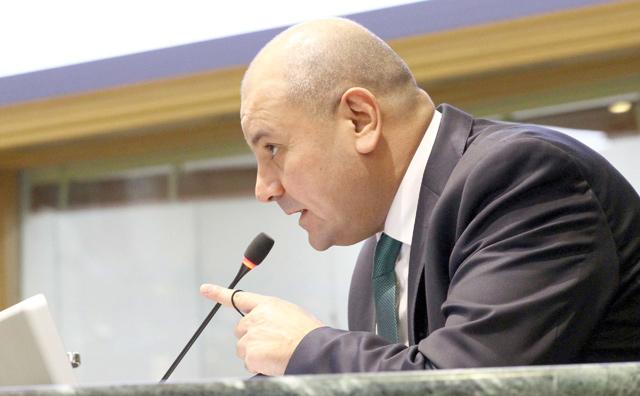- Local News
- Tue-2021-02-16 | 03:34 pm

The Lower House on Monday continued deliberations over the 2021 state budget law and budgets of independent public institutions.
MP Rashid Al Shouha said that the government in the state budget draft law speech has presented "hard alternatives” either to lay off employees, reduce public sector salaries or raise taxes, calling for the reconsideration of such probable decisions in a way that does not affect the lives of Jordanians.
During the session chaired by Lower House Speaker Abdulmunim Oddat, and attended by members of the Cabinet, Deputy Aref Saaydeh noted the fact that individuals’ debts for banks reached JD11 billion.
He added that Tax Department’s revenues from public shareholding companies, including banks, totalled JD770 million, while the Treasury incurs interest on domestic loans only by nearly JD1 billion, the Jordan News Agency, Petra, reported.
He also called for amending the monetary policy based on the liberalisation of interest rates, which reached some 9 per cent leading to increased borrowing cost for individuals and businesses.
MP Mayadah Shraim urged the government to lift subsidy on bread and impose restrictions on government borrowing, as well as to merge state budget with budgets of independent public institutions to make it easier for the Lower House to oversee and control public spending.
MP Suliman Gallab called on the government to facilitate investors mission via ensuring affordable energy prices and offering tax exemptions.
MP Abeer Jbour said that the government is required to review the allocated budgets for the governorates to ensure equity with Amman, calling for drawing a national plan based on self-reliance. Jbour also urged the government to open dialogue with professional unions, political parties and civil society organisations.
MP Omar Ayasrah said that the current budget sets off an alarm indicating a crisis between the government and the citizens, calling for "a national workshop” to find solutions.
Ayasrah said that currently citizens pay a total of JD3.825 billion in sales tax that "unfairly equates the rich with the poor”, noting that the state pays 65 per cent of its spending on salaries, which necessitates a review.









